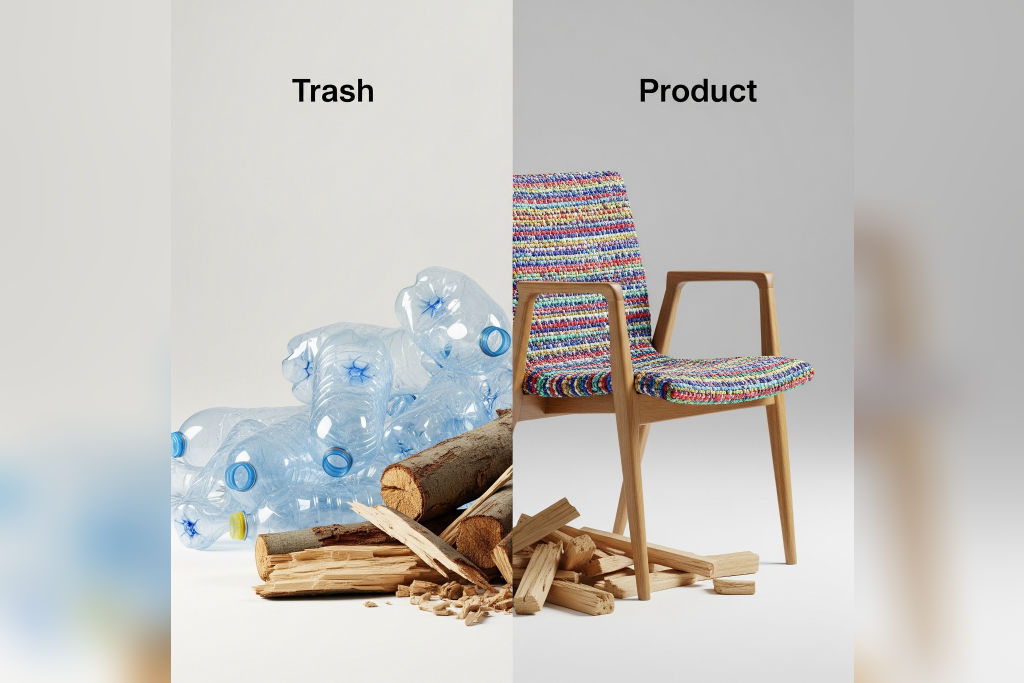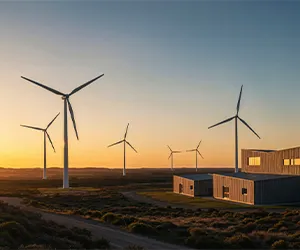Turning Trash into Cash: Waste Management Entrepreneurs
In today’s day and age, with environmental consciousness and sustainability gaining prominence, waste management entrepreneurship has emerged as a lucrative and sustainable business. The growing consciousness about waste dumping, pollution, and resource depletion has led to increasing numbers of entrepreneurs turning trash into cash. Through waste recycling startups, circular economy businesses, or novel waste management concepts, entrepreneurs are generating new avenues for recycling waste while turning profits.

Why Waste Management Entrepreneurship is Important
As the world is projected to generate 3.4 billion metric tons of waste by 2050, efficient waste management mechanisms have become more critical than ever. Conventional landfilling and incineration waste disposal practices destroy the environment, whereas innovative waste recycling startups provide eco-friendly solutions that generate value out of discarded material.
Businesses in this area are not only saving landfill space but also generating jobs, stimulating local economies, and promoting innovation. By adopting the circular economy business model, they are keeping materials in circulation as long as possible, taking pressure off natural resources.
Profitable Waste Management Ideas
If you’re looking to step into the waste recycling startups space, here are some profitable waste management ideas that have been gaining traction:
- Plastic Recycling and Upcycling – Converting plastic waste into usable products such as furniture, clothing, or construction materials.
- E-Waste Recycling – Extracting valuable metals and components from discarded electronics.
- Organic Waste Composting – Turning food scraps and garden waste into nutrient-rich compost.
- Paper and Cardboard Recycling – Collecting and processing used paper for resale to manufacturers.
- Textile and Fashion Waste Recycling – Upcycling discarded clothing into new fashion items or industrial materials.
- Scrap Metal Recycling – Recovering and reselling valuable metals from industrial and household waste.
- Tyre Recycling – Repurposing old tyres into fuel, playground surfaces, or construction materials.
- Biofuel Production from Waste – Converting organic waste into biofuels to generate clean energy.
Case Studies: Successful Waste Recycling Startups
1. TerraCycle (USA)
TerraCycle is a world leader in recycling difficult-to-recycle materials. They work with companies and municipalities to collect and recycle waste that would otherwise be sent to landfills. They have free recycling programs and sell recycled products, proving how a circular economy business can be extremely profitable.
2. Waste Ventures India (India)
This waste management startup entrepreneurship company is revolutionizing urban waste management through collaboration with waste pickers to rationalize collection and recycling activities. Their approach makes cities zero-waste while generating jobs for informal waste workers.
3. Rubicon (USA)
Rubicon delivers intelligent waste management solutions leveraging technology to maximize waste collection and recycling. Through data-driven insights, they enable businesses and municipalities to minimize waste and boost sustainability.
4. The Plastic Bank (Canada)
The Plastic Bank addresses plastic pollution through the offering of incentives for waste collection. Individuals in developing nations gather plastic trash for digital money, which can be utilized for basic necessities and commodities.
5. Greenhope (Indonesia)
This pioneering company has created biodegradable alternatives to plastic that are less wasteful. The product breaks down quicker than regular plastic, creating a clean waste management option.
The Circular Economy Business Model
The circular economy business model is transforming the way we view waste. The old linear “take-make-dispose” system is no more, because the circular economy encourages recycling, upcycling, and reuse to form a loop of sustainability that never ends.
Benefits of the Circular Economy in Waste Management:
- Reduces waste creation and landfill dependence.
- Conserves natural resources via reuse.
- Creates job opportunities in waste management entrepreneurship.
- Encourages innovation in product design and reutilization of waste.
- Reduces pollution and carbon footprint.
Challenges in Waste Recycling Startups
Despite the many opportunities, waste management entrepreneurs face several challenges:
- High up-front investment – The establishment of recycling factories and garbage collection systems involves large sums of money.
- Lack of awareness – Numerous businesses and consumers are yet to make segregation and recycling of waste a priority.
- Regulatory barriers – Government policies and regulations differ from place to place, affecting business operations.
- Logistics and collection problems – Effective waste collection and transport are still a problem in most regions.
How to Start a Waste Management Business
If you are interested in waste management entrepreneurship, then the following is a step-by-step tutorial to assist you in starting your business:
- Identify a niche – Choose a type of waste to deal with, such as plastic, e-waste, or organic waste.
- Conduct market research – Assess the demand for recycled matter and existing recycling technologies.
- Create a business plan – Determine your objectives, budget, and business plan.
- Secure finance – Obtain grants, loans, or investors to invest in your business.
- Create alliances – Collaborate with municipalities, businesses, and NGOs for waste collection and treatment.
- Comply with authorities – Obtain permits and comply with local waste management laws.
Conclusion
Waste management entrepreneurship is a thriving industry that offers immense opportunities for profit and sustainability. Whether you’re interested in waste recycling startups, circular economy businesses, or innovative waste management ideas, there are plenty of ways to turn trash into cash. With the right approach, waste management can be both an environmentally and financially rewarding venture. If you’re considering entering this space, now is the perfect time to contribute to a greener planet while building a successful business.
Frequently Asked Questions (FAQs)
Yes, waste recycling startups can be highly profitable, especially with innovative waste management ideas that cater to growing environmental concerns.
Some of the main challenges include high startup costs, regulatory complexities, and inefficient waste collection systems.
Some of the most profitable options include plastic recycling, e-waste recovery, organic composting, and metal scrap processing.
They help reduce landfill waste, lower carbon emissions, and conserve natural resources by repurposing discarded materials.
It ensures sustainability by promoting resource efficiency, waste reduction, and continuous recycling.












